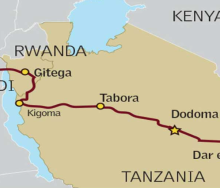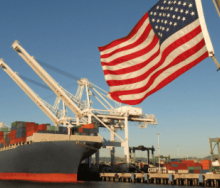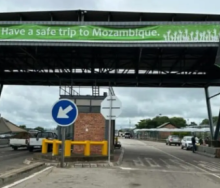MANZINI, ESWATINI – Supply disruptions into this landlocked country have not fully recovered after the blockage of road transportation at the height of civil disturbances last week. Now more perils loom for road transport operators into and out of the kingdom, which sources 80% of its goods from South Africa.
“The political reformers are going ahead with mass demonstrations, and one of their aims is to shut down the economy. At the same time, routes from South Africa have been blocked by disturbances there,” Amos Ndwandwe, a truck driver based in Matsapha, told Freight News.
Last week, South African truck drivers were skittish about entering Eswatini after some of their colleagues’ vehicles were attacked on highways. This week, Swazi truck drivers fear trips along their primary routes to KwaZulu-Natal and Gauteng because of disturbances there.
A “mother of all marches” is planned for Friday (July 15), in Manzini, seeking the closure of Eswatini’s main commercial and transportation hub. Police banned all public gatherings from the time pro-democracy demonstrations began in June, which culminated in an unprecedented nationwide rampage of violence and looting. Manzini banks and commercial services contacted by Freight News plan to simply remain closed on Friday. Other towns will see marches next week.
While food supplies resumed after government turned the internet back on – the web blackout prevented the Eswatini Revenue Authority from electronically clearing goods – a petrol shortage resulted in long queues at stations throughout the week. Police escorted petrol trucks and their valuable cargo to their destinations.
While border posts were operating normally on Wednesday, at the weekend, Oshoek, the main border with South Africa, was disrupted by members of the Economic Freedom Fighters (EFF), seeking to meet up with Eswatini political reform groups. On its side of the border, Swazi police ensured the meeting did not occur. The EFF has vowed to shut all eight of Eswatini’s borders with South Africa if government does not agree to political reforms. The outlook for the transportation sector in Eswatini at present is characterised by the certitude of uncertainty.













